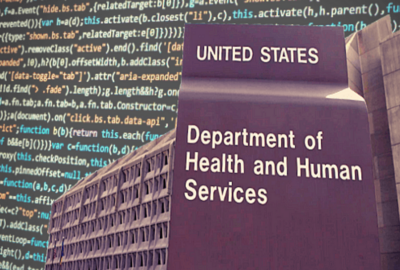Savannah River making up for lost IT time
Phil Cirrulli, the chief information officer for the managing and operations contractor for the site, is improving the national lab\'s infrastructure to support...
wfedstaff | June 4, 2015 2:32 pm
The Energy Department’s Savannah River site is making up for lost time.
For the last decade, the sites technology infrastructure was neglected as DoE decided in the 1990s to close the national lab.
Savannah River has since received a reprieve, but now it must improve its IT network to meet employees’ needs.
“We need to continue the path toward mobility,” said Phil Cirrulli, the chief information officer for the managing and operations contractor of the Savannah River site. “It’s been a challenge to find the money in an environment now where the country doesn’t have money and it translates down to you having less money. But mobility is very important because we have to make sure people can travel around the site and do same amount of work whether they are at their desk or not.”
Cirrulli, who is one of three CIOs at the national lab, is responsible for much of the IT infrastructure. He answers directly to Lewann Belton, the Energy Department’s career employee CIO at the site.
The development of the infrastructure to run mobile hardware and software isn’t just a matter of putting up a few WiFi modems. Cirrulli says the Savannah River site is 310 square miles, 90 percent of which is not developed and includes tall Pine trees and other rugged terrain features.
“You have to think about how you get coverage across the site,” he said. “Verizon is our partner and they don’t want to put up towers everywhere. So we are using WiMax, which is a line of site technology. We are mounting access points on poles across the site and that lets us get coverage of one-fourth to one-third of a mile. The next phase getting those access points to be available in buildings and then to the employee on the move.”
Eventually, Cirrulli said the network will run WiFi, video conferencing, iPads, iPhones and other mobile devices.
“We are embarking on a pilot to see how we can provide tools our employees so they can get to their information anywhere, anytime and through any device,” he said.
Cirrulli said under the pilot, employees receive government furnished iPhones, iPads, and other smartphone or tablet devices. They can access calendar, contacts and email, and some applications data, but none of the information is stored on the device.
Savannah also is letting employees connect their own devices to the network through a virtual private network.
Cirrulli said he’s doing all of this without new money. Instead, he’s renegotiating existing contracts for hardware, software and services, and using some of the savings to pay for new capabilities.
He said savings range from 10 percent to 30 percent of what the site formally paid for the same services.
Along with wireless access, Cirrulli said he’s focused on further implementation of a labwide enterprise resource planning (ERP) system.
“We’ve installed both the general ledger and general accounting, and the supply chain and project controls functionalities,” he said.
With the ERP system going live, Cirrulli said he is shutting down legacy mainframe systems. So far, Savannah River terminated 10 mainframes and plans to close down five more by the end of the year.
He said the ERP came in on time, under budget and met all its performance goals.
RELATED STORIES:
Berkeley National Lab riding the cloud to more services
Energy lab’s move to Google apps allows flexibility, scalability
Copyright © 2024 Federal News Network. All rights reserved. This website is not intended for users located within the European Economic Area.
Jason Miller is executive editor of Federal News Network and directs news coverage on the people, policy and programs of the federal government.
Follow @jmillerWFED







